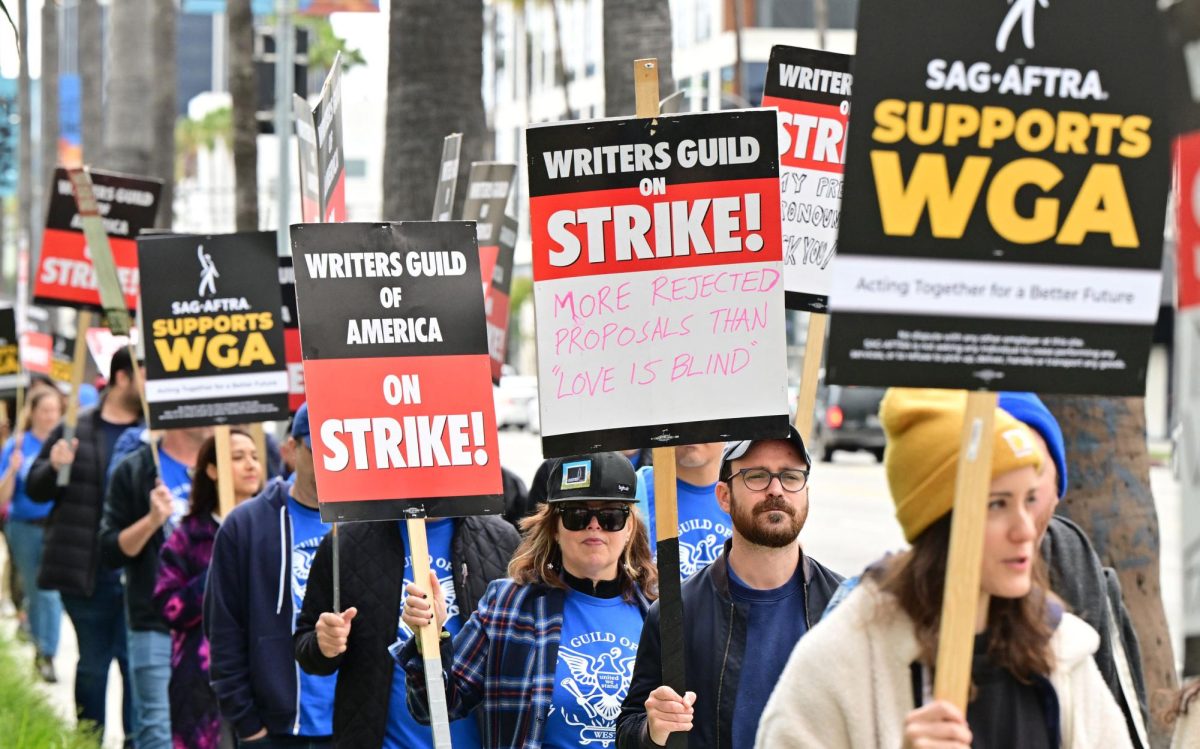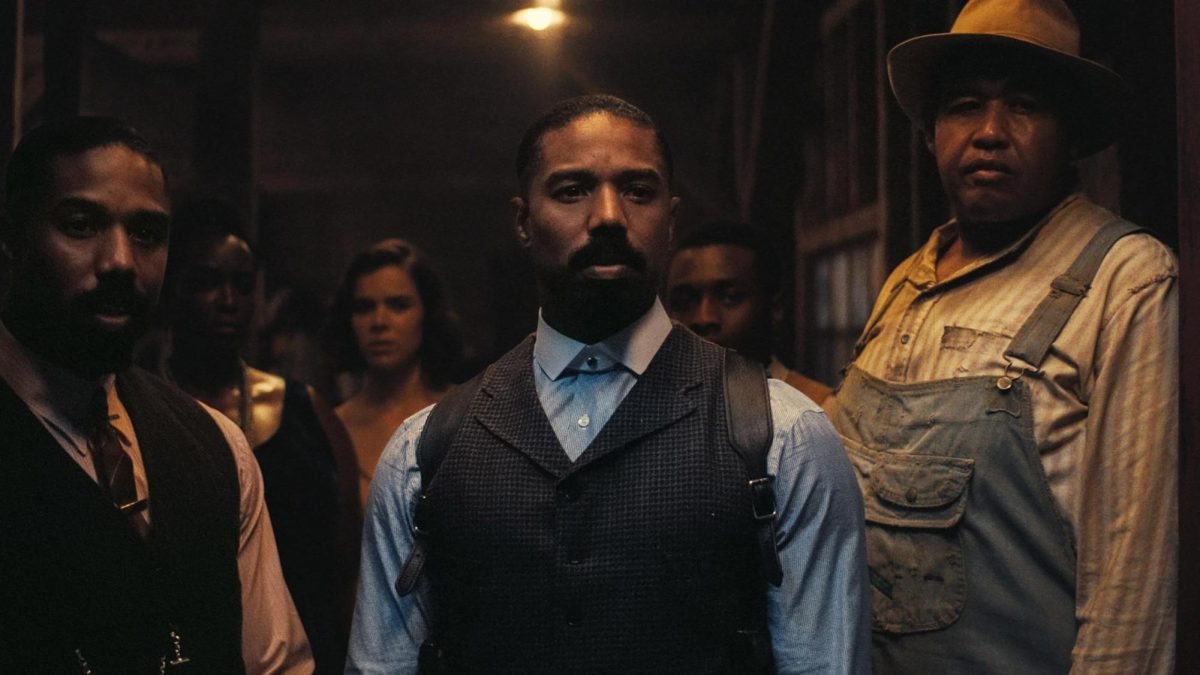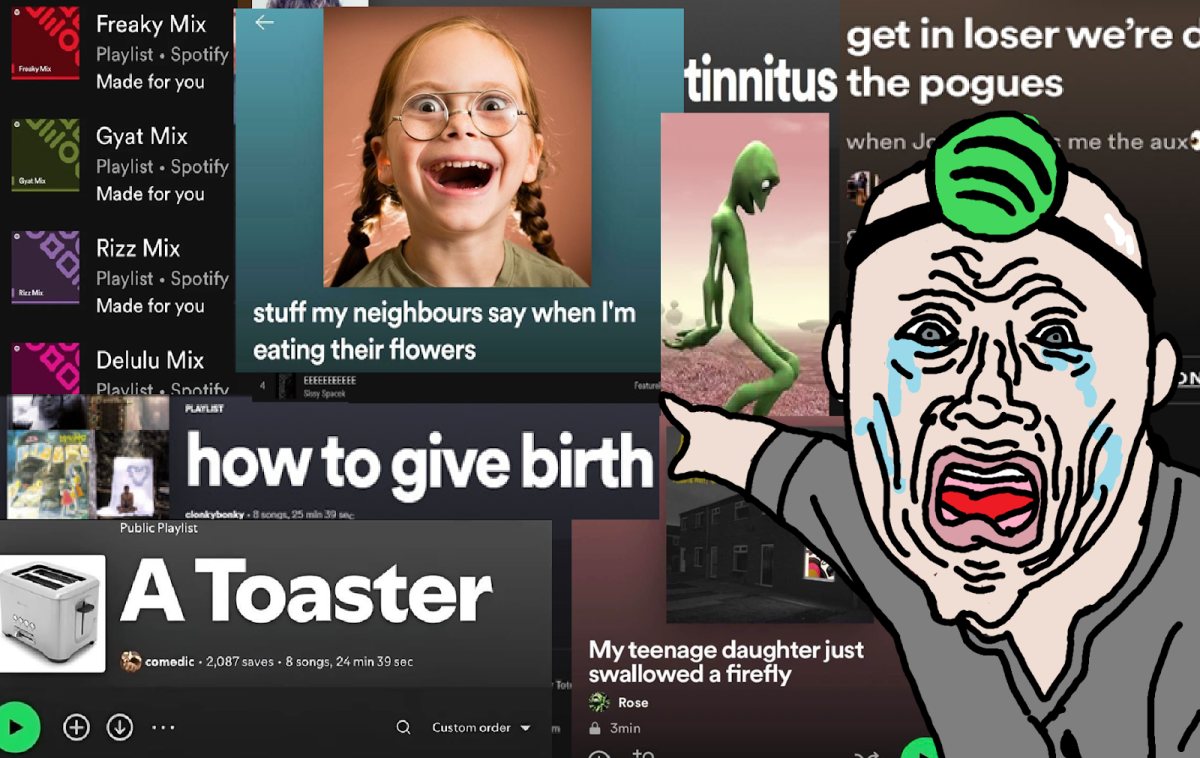Against all odds, writers across America have fought tooth and nail and secured their basic rights: better compensation for their work (including higher pay) and protection against AI stealing their work. The WGA’s (Writer’s Guild of America) 148-day struggle comes to an end even as SAG-AFTRA (Screen Actors Guild and American Federation of Television and Radio Artists) continues to strike.
The continued actor’s strike means that bigger movies and tv shows won’t start productions until later, although writers are now free to start creating scripts. With the success of WGA’s deal, late night shows such as “Tonight Show Starring Jimmy Fallon” and “Jimmy Kimmel Live!” returned to air on October 2, 2023.
However, a notable effect since the end of the strike was the loss of three main writers on the “The Drew Barrymore Show” after Drew Barrymore announced she would be returning to tape the fourth season last month. While not a violation of the SAG-AFTRA strike, it did violate the WGA strike and the choice made her incredibly unpopular. Even though she reversed her decision within a week, her writers chose not to come back after the termination of the strike.
After months of striking, writers gained most of their requests in the new contract. The guild ratified the contract on October 9, and it will remain in effect until May 2026. The official WGA contract released on their website states that writers received a promise for film residuals and higher pay, based on increased viewership. This means that streaming data, usually kept confidential by big companies, will be disclosed to the WGA. Foreign residuals have increased by 76%, and their overall salary increases as well. Pay will increase by 5% immediately, with 4% and 3.5% additional increases in May 2024 and May 2025 respectively. Writers now receive premium (an extra charge) on backup scripts and pilot, as well as an 0.5% increase in health and pension funds.
AI use hasn’t been banned, but regulations give writers a lot more agency. It can be utilized as a tool by the writer, but can’t be used without the writer’s consent or to reduce staffing. Additionally, original content can’t be used to train AI software, and the credit for the scripts it writes will go to the writer it is assisting. Writer rooms, having noticeably shrunk over the years, now have a set number of minimum writers depending on the number of episodes in the show.
The implications of the deal include fewer shows being churned out by streaming giants, but this provides writers more job security as they will last longer. It’s a win for consumers too; this means less cancellations in shows audiences are invested in. In the aftermath of the trial, studios face immense losses: according to Variety Magazine, Warner Bros, once unwilling to admit the importance of writers, now projects losses between $300 and $500 million next year. While their revenue is projected to be around $10 B, this loss could have been minimized by agreeing to the original $45 million WGA deal.
Even though SAG-AFTRA continues to strike, the success of the WGA is encouraging for all unions. Previously, studios were adamant that they wouldn’t provide protections (especially on the AI issue) and that the writers were asking for too much. The protest was a wake-up call for a lot of studios, and sets a precedent that hard struggles will prove fruitful in the end.













